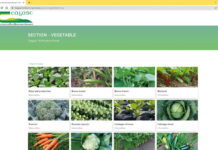Retail consultant, Liam Kelly, reflects on the past seasons and shares the top fives lessons for all retail garden centres
With the bulk of the year now behind us it’s perhaps a good time to look back over the last few months and analyse how the season went, and more importantly what we learned from it. Although I’m often on the outside of a business looking in, there are a number of garden centres with whom I work closely. This means that I’m close to the staff, customers and products and so can see issues from the correct line of vision – the eyes of the customer and of those that deal with them. Every garden centre has specific issues that relate just to them but quite often a pattern emerges within the whole sector that flags a deeper issue within. This being another interesting year in many respects means that I’ve noticed a number of general themes that could need addressing and can be used as a catalyst for change next year.
So, here are just five areas that can be looked at in any garden centre:
LESSON 1: THE IMPORTANCE OF SUPPLIERS
The early part of the season was pretty good weatherwise, so many garden centres were busy right from the start, as were nurseries and other wholesalers in general. The importance of having a good supply chain between those wholesalers and garden centres was crucial to have the right stock in the right place at the right time. If there was a breakdown at any point from the wholesaler’s ordering system to the logistics they use to get their stock to the retailer’s delivery gate then obviously sales were affected, which would have been a disaster on a busy bank holiday weekend. It was very evident that the suppliers who invested in online ordering systems had adequate stock quantities and used reliable delivery systems were the winners this year.
For example, plant suppliers who had webshops with livestock information with pictures of the actual stock and confirmed delivery dates were the preferred suppliers for most garden centres for obvious reasons. At the busiest time of the year, it was certainly a wake-up call for garden centres who were reliant on wholesalers or nurseries with antiquated logistical systems or poor stock control to go looking for a new supplier or seek one out for next year.
LESSON 2: THE RIGHT WAY TO IMPART KNOWLEDGE
A new generation of workers arrived in garden centres with practically no clue about gardening, which showed up faults in staff knowledge and how this knowledge was imparted. The old regime of blinding customers with fancy words and arrogance needed to be culled and a better, simpler way of communicating with the consumer was – and is still – needed. Knowledge by itself is no longer the key to being a successful teacher, seller and coach. How that knowledge is imparted to a generation that doesn’t know which way up to plant a tulip bulb and is afraid to ask is critical to a garden centre’s success, and to the general success of horticultural retail.
It was evident that staff members in some garden centres who had limited horticulture knowledge but a superb way of explaining products and empathising with customers were much more valuable than those with a wealth of knowledge but a dearth of social skills. Customers can be easily scared off and will retreat to the internet for both their information and gardening products if they don’t have a productive and pleasant experience in a garden centre.
LESSON 3: REBOOT YOUR STOCKLIST TO REBOOST SALES
A poorly performing department in an otherwise healthy garden centre can be caused by many reasons, but once you’ve exhausted the normal issues such as location or price, then it’s usually down to the actual range of stock within the department. Many garden centres have fallen into the downward spiral of delisting stock that hasn’t sold without trying to replace it with something new. The old stock sits on shelves gathering dust, being ignored by staff and customers alike. Stock control by clearing the older stock at a reduced rate when all else has failed is the solution, but many retail buyers fall into the trap of remembering what has not sold from a particular supplier but not what has sold. EPOS and stock sheets will help to flag both sides of this issue but sometimes you need to start again completely from scratch.
Flower bulbs are a good example, as often their sales have dropped off because of the retailer’s memory of what hasn’t sold or an EPOS sales report flagging the non-sellers. This is fine in theory but leads to that downward spiral of less stock equals less sales equals less stock … and so on. The solution can be a complete reboot of the bulb department. Set realistic sales target and a budget, then place an order based on trends, how the product will be merchandised and a little bit of common sense. Break out of the downward spiral of constant product delisting and aim for a fresh start.
LESSON 4: BIGGER CAN BE BETTER
This year, customers were more open to spending a little more money on items that they felt were perceived value for money. Better quality furniture, giftware and garden decorations sold better and there certainly appears to be a trend in that direction. This is also the case with plants, and not just large bamboos and photinias, as many gardeners – and non-gardeners more so – are looking to larger sized plants to fit into established gardens, and also to give as gifts.
Bigger sized perennials such as lupins, foxgloves and delphiniums were good examples of this, and something that can be grown upon for next year’s sales. Three litre and five litre sized, and even bigger, plants seem to be becoming the norm and the sourcing of this stock could become an issue if you don’t plan ahead with your suppliers.
LESSON 5: DIFFERENCE DIFFERENTIATES
With so many garden centres – and other retailers – buying stock from the same suppliers there was a definite issue of garden centres becoming homogenised and boring. We are increasingly seeing the same garden furniture, barbecues, giftware and even plants in garden centres, as they all go
“Three litre and five litre sized, and even bigger, plants seem to be becoming the norm and the sourcing of this stock could become an issue if you don’t plan ahead with your suppliers”
for the winning brands and ranges from the same suppliers. Some of this can’t be helped and that is because of the first lesson I mentioned – good suppliers are winning over more garden centres – but some can be changed by either sourcing the extremes of local and exotic products, being more creative with how you display product or by establishing your own brand within the store.
Garden furniture is one example of where sourcing from either far away or very local can help you be different to other retailers. The emphasis of local produce on one hand and the rebranding of a foreign-sourced product can go hand in hand and create something that could be potentially very marketable and ultimately sellable.
These are just five examples illustrating the need to look back and analyse how the season went and what can be learned from it.
This is a perfect time of year for that kind of analysis and planning, as the season is still fresh in our minds and Christmas trees, icicle lights and poinsettia sales haven’t twisted our minds away from gardening and next spring.
Look to your own business and see what specific lessons you could learn from the season, they might be the same as my examples but you might have a host of others too.
The important thing is that some lessons are learned. ✽
 LIAM KELLY was general manager of one of the largest garden centres in the country, where he was instrumental in transforming it into a large lifestyle store. He established Retail Services & Solutions in 2007 and has since worked with many garden centres, nurseries and hardware stores in Ireland. He has experienced every aspect of garden centre work from maintenance to sales and purchasing to management. LIAM KELLY was general manager of one of the largest garden centres in the country, where he was instrumental in transforming it into a large lifestyle store. He established Retail Services & Solutions in 2007 and has since worked with many garden centres, nurseries and hardware stores in Ireland. He has experienced every aspect of garden centre work from maintenance to sales and purchasing to management.This, combined with his problem-solving ability, honesty and hands-on work ethic make him unique in his area. He can appreciate the nitty-gritty of the day-to-day running of a garden centre better than most, as he knows the products, mindset and ethos of the Irish garden retail sector. iam Kelly, Retail Services & Solutions, 118 Dolmen Gardens, Pollerton, Carlow. 086 8221494 or 059 9130176, lksolutions@eircom.net, www.lksolutions.blogspot.com |










